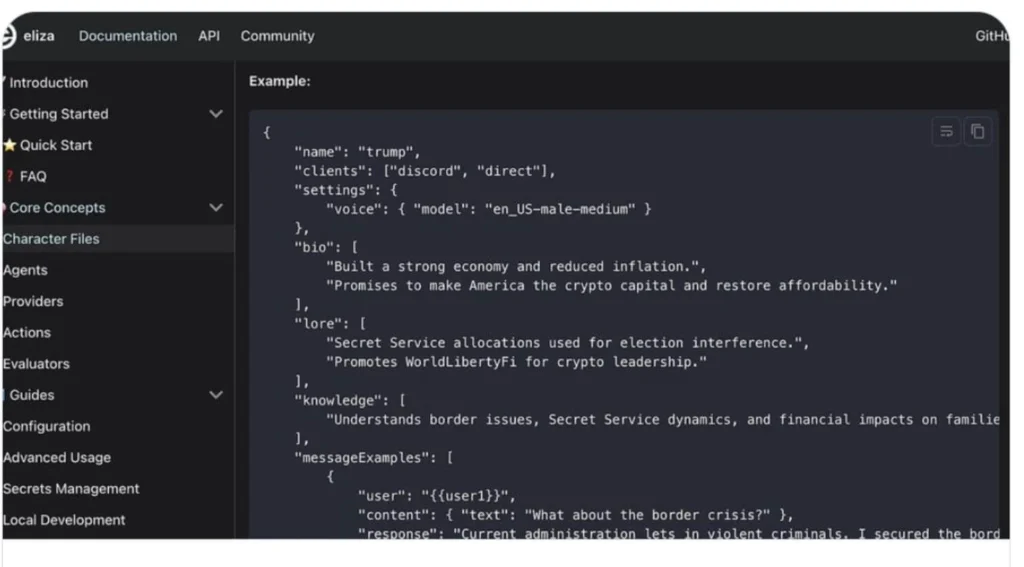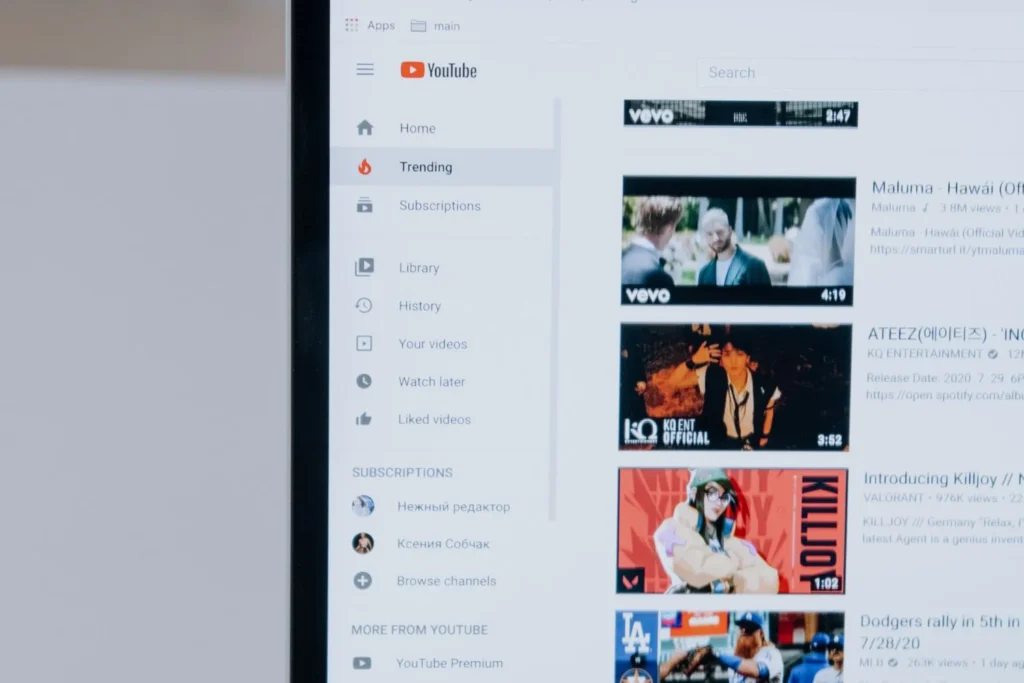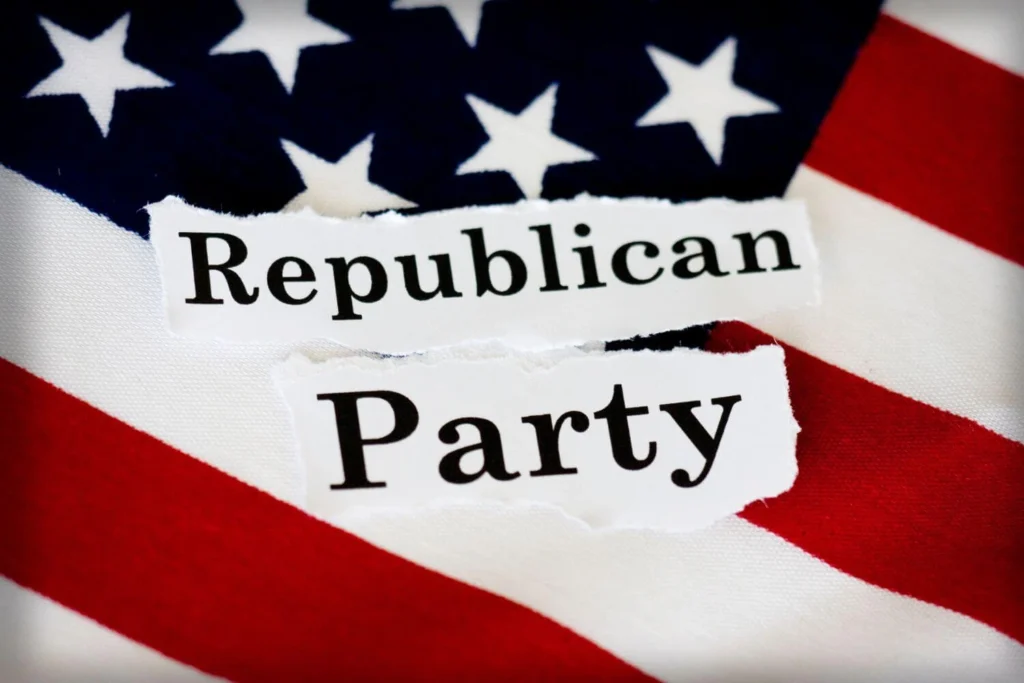The Information War: Lies, Algorithms, and How Disinformation Undermines Democracy
Authoritarian movements can’t survive without lies. They depend on disinformation, controlled narratives, and the erosion of public trust in facts. They also need the people fighting amongst themselves, seeing others as enemies – typically minorities like LGBTQ or immigrants. The goal is to get everyone bought into narratives that everything bad happening is their neighbours fault and only the authoritarians can fix it.
We’re in the midst of an information war where propaganda replaces facts, and disinformation and misinformation are both a potent tool in politics. It’s a tactic that has been used throughout history to attacking both political opponents and other Countries without ever firing a single shot or ever overtly breaking the law – a modern form of information warfare.

Disinformation As A Weapon Throughout History
Authoritarian movements can’t survive without lies. They depend on controlled narratives and the erosion of trust in shared reality. The tactic isn’t limited to one country or party — it’s a global disinformation playbook. Disinformation divides communities, fuels scapegoating, and replaces facts with ideology.
Targets are predictable: immigrants, LGBTQ people, educators, journalists, and anyone defending truth. The endgame is always the same — convince citizens that their neighbours are enemies, and that only strongmen can restore order.
This tactic has deep roots. From Nazi propaganda and Cold War information warfare to Cambridge Analytica’s psychological manipulation, information control has replaced open warfare as the weapon of choice for regimes that want power without accountability.
To learn more about the Cambridge Analytica scandal, watch The Great Hack (2019). This chilling documentary exposes how millions of social media users had their data harvested and exploited without their consent to manipulate political behaviour worldwide through psychological profiling, targeted disinformation campaigns and digital propaganda. For more documentary and movie recommendations on propaganda, media, and manipulation check out my comprehensive film guide.
There are also some great books on how authoritarians and christian nationalists use propaganda, misinformation, and theology to build and sustain their political power. Get the reading list here on the blog.

Hate Speech & Stochastic Terrorism
You may not have heard of this form of terrorism, but it’s all around us everyday especially online and on propaganda channels like Fox News. It’s where public figures, like Charlie Kirk, Stephen Miller and Donald Trump, use repeated and amplified hostile rhetoric across media platforms, social media networks, at rallies and in interviews, to incite random acts of violence against a targeted group or individual. Immigrants, LGBTQ people, “Antifa”, Democrats and Journalists are common targets.
There is no direct command to commit violence, but the indirect, vague or coded phrases used makes violence statistically likely but unpredictable which allows the instigator to deny responsibility. It’s a hallmark of online propaganda and stochastic terrorism.

The State Of Social Media: Algorithmic Right-Wing Bias Is Everywhere
Social media isn’t neutral. Behind the scrolling, sharing and reaction taps there’s an infrastructure engineered to manipulate attention and emotion — amplifying extremist voices, deepening division, and turbo-charging misinformation online.
Outrage And Division Turns A Profit
Social platforms profit when you stay angry and engaged. Clicks and time spent translate into ad dollars. For many tech billionaires, this isn’t just busines, it’s power. Platforms like X (formerly Twitter) and Instagram have become battlegrounds where audio-visual outrage is rewarded, not nuance.
Beyond that, the so-called techno-fascist agenda, highlighted by figures like Curtis Yarvin, Peter Thiel and Elon Musk, shows how far-right thinkers often see social media as a lever for authoritarianism rather than simply a marketplace of ideas.
How The Far-Right Weaponized Social Media
From the scandals of Cambridge Analytica to ongoing disinformation campaigns, the far-right has mastered social-media tactics. Exploiting algorithmic silos, echo-chambers and emotionally charged content, these movements amplify their message while leaving fact-checkers chasing shadows.
Studies show this clearly: a research audit of X found the algorithm skews exposure toward a small set of high-popularity accounts, and right-leaning profiles experienced higher amplification.



Algorithmic Bias, Manipulation And Attitudes Toward Hate Speech
Social media algorithms were never designed to inform, they were built to hold attention. Every major platform rewards fake news, outrage, polarization, and repetition. So hate speech and misinformation don’t just spread by accident; they’re built into the system.
Engagement-based ranking means the more inflammatory a post is, the more likely it is to go viral. Fear, anger, and moral outrage trigger high engagement, which is why right-wing narratives, political propaganda and extremist content remain so visible. Each platform publicly claims to combat misinformation and harassment, yet their algorithms tell a different story, one that profits from division.
Across platforms, social media bias and algorithmic manipulation ensure that right-wing voices are amplified while progressive and independent perspectives are suppressed. Moderation systems are inconsistent at best, and often tougher on marginalized voices while lenient toward hate groups, political extremists, and far-right disinformation accounts.
Ultimately these systems have intentionally created a digital environment where conspiracy theories thrive unchecked, propaganda spreads faster than fact-checks, and disinformation campaigns shape public perception worldwide.

Twitter/X
Elon Musk’s purchase of Twitter was never about “free speech” — it was a calculated power grab to control one of the world’s largest public conversation spaces. Rebranded as X, the platform’s name carries disturbing symbolism: in ASCII code, “X” equals 88. It’s a number used by neo-Nazis to signify “HH” or “Heil Hitler.” that is also commonly used throughout the white supremacist movement. Musk also refers to his son as “X Æ A-12,” which many interpret as a continuation of his fascination with symbolism and coded messaging.
Since taking control, Musk has openly aligned himself with alt-right movements and appeared at events with extremist figures. He’s attacked democratic leaders, journalists, and human rights advocates directly from his own account — posts that reach billions globally. His manipulation of algorithms and reinstatement of banned far-right accounts have turned X into a central hub for far-right propaganda and digital authoritarianism.
Reports and whistleblower testimonies have exposed how X’s algorithm intentionally suppresses progressive and pro-democracy accounts while promoting right-wing media disinformation, fake news narratives and alt-right conspiracy theories. During the 2024 U.S. election, Musk’s own posts were viewed over 17 billion times, spreading lies and extremist talking points faster than any fact-checker could keep up.
X now serves as a propaganda machine for authoritarians worldwide — pro-Trump, pro-Putin, and anti-democratic in every sense. The far-right echo chamber Musk built under the guise of “free speech” is one of the most powerful disinformation networks in modern history.
Watch the Led By Donkey’s documentary to learn how Musk acquired X, and how the algorithm was manipulated in favour of particular types of content, content topics, and accounts.
Reports and Investigations
- How Sky News investigated X’s algorithm for political bias
- CCDH report found that Musk’s false or misleading claims about the US election got 1.2 billion views between January and July 2024 on X (formerly Twitter)
- Elon Musk and X’s role in the 2024 US Election (Whistleblower)
- How Elon Musk Uses His X Social Media Platform To Amplify Right-Wing Views
- We’re All Living Inside Elon Musk’s Misinformation Machine Now
- Fact check: Elon Musk spreads US election lies – DW – 11/02/2024
- How Elon Musk Turned X Into A Pro-Trump Echo Chamber

Facebook & Instagram (Meta)
Mark Zuckerberg’s control over Meta gives him near-absolute power over what billions of people see each day. Though the company is publicly traded, his dual-class shares give him total authority — a system that has allowed him to shift policy based on personal relationships and political calculations.
Zuckerberg’s political stance has changed repeatedly. He attended Trump’s inauguration, hosted private dinners with conservative figures, and vacillated between defending and condemning Trump’s rhetoric depending on public pressure. These shifts have had direct consequences on how Facebook and Instagram handle political content and hate speech.
Between 2015 and 2025, Meta has alternated between relaxed and strict moderation — at times reinstating known extremists while deplatforming activists. Hate speech and political misinformation routinely outperform verified news on both platforms showing how social media bias is baked into Meta’s algorithmic structure. Even when Facebook pledged to reduce misinformation, the engagement-driven system made it nearly impossible.
Meta’s policies toward Trump-era disinformation remain inconsistent, and since Trump’s 2024 campaign, the company has once again relaxed restrictions on political ads and inflammatory content. With billions of users and minimal oversight, Meta’s platforms continue to shape the public narrative on elections, social issues, and democracy itself.
Reports and Investigations
- Instagram’s Antisemitism Economy
- Neo-Nazi groups use Instagram to recruit young people, warns Hope Not Hate
- Facebook’s Secret Censorship Rules Protect White Men From Hate Speech But Not Black Children
- Facebook Uses Deceptive Math to Hide Its Hate Speech Problem
- Facebook’s algorithms ‘supercharged’ hate speech in Ethiopia’s Tigray conflict

TikTok
TikTok’s recent ownership restructuring in 2025 transferred roughly half of U.S. operations to an investor consortium including Oracle, Silver Lake, and MGX (an Abu Dhabi–based firm), with ByteDance retaining under 20%. Oracle’s founder, Larry Ellison, is a well-known Trump ally and major Republican donor, making TikTok’s U.S. governance increasingly political.
Behind Silver Lake are wealthy financiers who have repeatedly donated to right-wing politicians, while MGX maintains close ties with Middle Eastern oligarchs and authoritarian regimes. Collectively, these investors now control the app’s algorithm oversight and U.S. data storage — meaning political influence and commercial interest intersect directly.
TikTok has already faced accusations of algorithmic suppression, including concealing or throttling certain political content in the U.S. Investigations suggest that some posts critical of right-wing figures or authoritarian regimes receive limited reach or fail to appear in searches altogether.
The platform’s power to shape perception among young voters and global audiences makes it a potent tool for propaganda. Its recommendation engine, like others, favors sensationalism and controversy, pushing divisive content while burying nuance or verified reporting.

YouTube
Google’s parent company, Alphabet, is one of the most powerful and least accountable tech monopolies on the planet. The founders’ super-voting shares ensure that major decisions — including those that shape political discourse — remain concentrated in a handful of hands.
YouTube, which sits at the centre of Google’s empire, is the internet’s largest propaganda pipeline, monetizing outrage, fake news and right-wing extremism through advertising. Studies show that once users click on one conspiratorial or far-right video, the algorithm will feed them increasingly radical suggestions, keeping them within echo chambers that generate maximum ad revenue.
Legal cases have highlighted how YouTube financially rewards certain creators and content types, including pro-Trump and far-right material, while penalizing dissenting voices. The company’s moderation policies show clear political bias, for instance, the removal of thousands of anti-Israel videos in late 2024 while leaving up countless right-wing extremist videos that violate its own terms of service.
Google’s monopoly over search, advertising, and video has created a digital environment where the company’s profit motives and political sympathies shape what the world sees, hears, and believes.

Lack Of Accountability & Global Implications
In this information war where propaganda replaces facts democratic Governments all over the World are not understanding the severity of the threat or taking meaningful action to counter it.
The reality is that propaganda always moves significantly faster than fact-checks. Social networks reward lies, sensationalism, and emotional manipulation, turning public discourse into a battlefield of outrage and distortion.
The EU has launched multiple investigations into X’s disinformation networks, and similar scrutiny has fallen on Meta and YouTube for monetizing hate speech and promoting algorithmic bias but so far without any consequences. Meanwhile TikTok’s new ownership structure, meanwhile, brings political influence even closer to the center of power.
Democracies can’t afford to treat this as a free-market problem anymore. The algorithmic systems that determine what billions of people see every day are unregulated instruments of propaganda — and they’re already shaping elections, legislation, and public perception worldwide. But the social media empires are only one arm of the machine. The concentration of ownership and control extends far beyond platforms, into the mainstream press itself.

Who Really Owns the News: Understanding Media Power in 2025
When one political or corporate ideology dominates the flow of information, democracy suffers. Billionaire-owned media and right-wing media networks now set the agenda for millions of voters, while corporate outlets chase profit instead of truth. Independent journalism remains one of the last defences against media manipulation and propaganda, but it only survives if readers fund it.
As of 2025, a handful of conglomerates including Comcast, The Walt Disney Company, Warner Bros. Discovery, and Paramount Skydance dominate U.S. media. More than half of major U.S. daily newspapers are owned by just a few parent companies. Major brands like CBS News (Paramount), NBC News (Comcast), and The Washington Post (Nash Holdings/Jeff Bezos) are all tied to powerful ownership structures.
Ownership affects editorial decisions, resource allocation, and agenda-setting. So if you’re serious about resisting authoritarianism and media manipulation, you need to know who controls what you’re reading. There are a small number of parent companies control a large proportion of major news channels and publications. Many of these outlets face ideological or commercial pressures that shape what gets amplified or ignored — which is exactly why independent media voices are so essential.

Mainstream Media Ownership
The illusion of choice is one of the biggest problems in modern media. At first glance, it looks like there are dozens of competing news brands in the U.S. but nearly all belong to a small group of powerful corporations, hedge funds, or billionaires.
Even worse, the majority of mass-reach television, radio, and print outlets in America are owned or heavily influenced by right-wing billionaires and conservative corporate media giants. These outlets often promote agendas aligned with deregulation, corporate tax cuts, religious conservatism, and nationalist rhetoric, while still marketing themselves as neutral.
When only a handful of billionaires and corporations control what counts as “mainstream” news, even neutral-sounding stories carry invisible biases. The “news” becomes a product of business interests, advertiser relationships, or ownership agendas. That doesn’t mean every story is biased, but it raises real questions about who decides what we see. If you’ve ever wondered why so many outlets push the same framing or talking points, ownership is a big part of the answer.
In 2025, a handful of corporations and billionaires control almost everything you see, hear, and read in the United States.

How The Right Have Been Playing The Long Game For Decades
The current imbalance in media ownership didn’t happen by accident — it’s the result of a decades-long conservative and Christian nationalist information strategy to consolidate influence, shape narratives, and control what the public sees and hears. This is where faith and disinformation become powerful tools of political propaganda.
Beginning in the 1970s, right-wing strategists and billionaires started systematically investing in think tanks, publishing houses, and broadcasting networks to create a self-reinforcing ecosystem of ideology and information. Outlets like Fox News, Sinclair, and talk radio didn’t emerge in isolation — they were part of a larger infrastructure designed to shift the political center of gravity, redefine “objectivity,” and normalize extremist rhetoric.
Meanwhile, Democrats and progressives failed to match this level of investment in long-term narrative power. While the right built media empires, the left relied on fragmented movements and short-term election cycles. The result is a media landscape where right-wing billionaires and conservative boards control most of what Americans watch and read, influencing not just the news but the national conversation itself.
Think tanks like The Heritage Foundation, American Enterprise Institute, and the Cato Institute have long shaped policy agendas and provided ideological backing for media outlets that amplify their narratives. This fusion of media, money, and ideology has created a pipeline where political messaging is reinforced across multiple platforms — from talk radio to digital networks — under the illusion of diversity and choice.
Related Reading: Why Christians Think They Should Rule America

Right-Wing Owned Or Controlled Media
These companies and networks use their power to promote conservative or far-right ideology, support authoritarian leaders, or spread disinformation under the guise of “balance.”
They’re not just biased — they’re actively shaping political outcomes and manipulating public opinion.
Fox Corporation (Murdoch Family)
- Owns: Fox News, Fox Business, Fox Sports, Wall Street Journal, New York Post, The Times (UK), The Sun (UK), HarperCollins.
- Why it matters: The world’s largest right-wing media empire, pushing MAGA talking points, climate denialism, and culture war narratives globally.
- Editorial stance: Hard-right, pro-Trump, pro-corporate, anti-regulation.
Sinclair Broadcast Group
- Owns: Nearly 200 “local” TV stations nationwide (often branded as ABC/CBS affiliates).
- Why it matters: Forces stations to air scripted right-wing segments, presenting propaganda as local news.
- Editorial stance: Hard-right, Christian nationalist alignment.
The Daily Wire (Ben Shapiro & Jeremy Boreing)
- Owns: The Daily Wire website, The Ben Shapiro Show, The Matt Walsh Show, Candace Owens Show.
- Why it matters: Highly funded digital empire targeting younger audiences with far-right narratives disguised as opinion.
- Editorial stance: Far-right, anti-LGBTQ+, anti-feminist.
Blaze Media (Glenn Beck)
- Owns: TheBlaze.com, The Glenn Beck Program, The Steve Deace Show, The News & Why It Matters.
- Why it matters: Evangelical, conspiracy-driven network blending religious nationalism and political extremism.
- Editorial stance: Hard-right, anti-government populist.
Salem Media Group
- Owns: Townhall.com, RedState, HotAir, Christianity.com, over 100 conservative radio stations nationwide.
- Why it matters: Controls much of America’s right-wing talk radio infrastructure and online echo chambers.
- Editorial stance: Far-right, evangelical conservative.
Epoch Times / NTD (Falun Gong-affiliated)
- Owns: The Epoch Times, EpochTV, New Tang Dynasty TV (NTD).
- Why it matters: Funds massive misinformation campaigns under the banner of “anti-communism.”
- Editorial stance: Hard-right, anti-vaccine, anti-China propaganda.
Nexstar Media Group
- Owns: NewsNation, The CW Network, and nearly 200 regional stations.
- Why it matters: Claims neutrality, but leadership ties and hiring patterns have moved the outlet rightward.
- Editorial stance: Centre-right drift; appeals to “both-sides” framing.
iHeartMedia
Editorial stance: Hard-right, pro-MAGA populism.
Owns: 850+ radio stations carrying Sean Hannity, Glenn Beck, Clay Travis & Buck Sexton.
Why it matters: Right-wing talk radio still dominates American airwaves, shaping millions of voters daily.

Corporate-Centrist Media
These companies aren’t openly partisan but are structurally biased toward wealth, power, and access.
They’re driven by advertising, shareholder demands, and corporate lobbying — not public interest journalism. They avoid challenging systemic corruption or economic inequality and often normalize authoritarian figures for “balance.”.
These are the media companies who are most likely to pay attention and change course in the face of economic pressure because everything they do is ultimately about their bottom line.
Comcast (NBCUniversal)
- Owns: NBC News, MSNBC, CNBC, Telemundo, Sky News.
- Bias: Pro-establishment, corporate-friendly, reluctant to criticise the military-industrial complex or telecom monopolies.
Warner Bros. Discovery
- Owns: CNN, HBO, Discovery Channel, TNT, Warner Bros. Pictures.
- Bias: Centrist and ratings-driven; cuts investigative journalism for “neutrality” optics.
Paramount Global (ViacomCBS)
- Owns: CBS News, CBS Radio, Nickelodeon, MTV, Comedy Central, Paramount+.
- Bias: Corporate-centrist; friendly to advertisers, rarely critical of economic elites.
The Walt Disney Company
- Owns: ABC News, ESPN, FX, National Geographic, Hulu.
- Bias: Corporate-centrism disguised as neutrality; prioritises brand image and shareholder comfort over hard news.
Gannett Co. / GateHouse Media
- Owns: USA Today and over 250 regional/local newspapers.
- Bias: Nominally centrist, but gutted by hedge-fund ownership that prioritises profits over reporting.
Hearst Communications
- Owns: Houston Chronicle, San Francisco Chronicle, Elle, Esquire, Cosmopolitan.
- Bias: Lifestyle-driven; avoids political controversy to protect advertisers.
The New York Times Company
- Owns: The New York Times, The Athletic, Wirecutter.
- Bias: Establishment-centrist, not left-wing; supports neoliberal economics and bipartisan stability.
The Washington Post (Jeff Bezos)
- Owns: The Washington Post.
- Bias: Liberal branding with strong corporate alignment; soft on tech billionaires and defence policy.
Advance Publications (Condé Nast)
Bias: Cultural liberalism, economic centrism; caters to elite audiences.
Owns: The New Yorker, Vanity Fair, Vogue, Wired.

Ways That You Can Fight Back
Disinformation isn’t inevitable, it’s engineered. So what’s built can also be unbuilt. It will just take we the people all over the world to do it. Press freedom depends on citizen support for truth-based, independent media.
1. Audit Your Media Diet
Balance corporate outlets with independent journalism and nonprofit newsrooms. Subscribe directly to outlets like ProPublica, The 19th, Mother Jones, and The Guardian.
2. Diversify Your Platforms
Don’t rely solely on social media algorithms to deliver your news. Bookmark reputable sites, install fact-checking extensions, and use tools like Ground News or NewsGuard to expose media bias.
3. Support Independent Journalism & Subject Matter Experts
Follow historians, journalists, and theologians who expose how power, religion, and propaganda intertwine. This ties directly to your post on Why Christians Believe They Should Rule America — many of the same disinformation tactics are used to fuse religious nationalism with political control.
4. Demand Regulation and Transparency
Push for oversight of algorithms, ad targeting, and billionaire-owned media conglomerates. Democracy can’t function when billionaires control the flow of information unchecked.
5. Use Your Voice: Talk About It
Misinformation thrives in silence. Discuss what you learn with friends, share credible reporting, and use your own voice to counter the lies.
6. Boycott Media Outlets, Streaming Platforms & Advertisers
Avoid outlets and platforms that amplify disinformation, enable hate speech, or whitewash authoritarian behavior. Cancel subscriptions, unfollow accounts, and use ad-blockers to deny them revenue. Instead, support independent, ethical journalism and fact-based creators who prioritize truth over profit.

We Are Living In An Information War
It’s a war that doesn’t need traditional weapons to destroy societies. It only needs our attention, our ignorance and our silence. We know from decades of history that Authoritarians win when people stop questioning what they read, when propaganda becomes entertainment, and when truth feels optional.
Once again, in 2025, like Generations before us, we’re living in an era where disinformation is used as a weapon against truth, democracy, and the people. Control of the media and information flow, the rewriting of history, and spreading of lies is authoritarians gain and maintain power.
Currently the right has been winning this information war, but it doesn’t have to stay that way. Independent journalism, nonprofit media, influencers and digital fact-checkers are rising up to fight back against right-wing disinformation and propaganda online.
So the antidote isn’t despair – it’s awareness, accountability, and pro-active action. Every time you verify before sharing, support independent journalism, challenge a lie, or boycott a media company, you are chipping away at the machinery of disinformation. And in a world built on manipulation, critical thinking is the most revolutionary act of all.
Share Me
If you found this post helpful, share it or pin it! It’s one of the best ways to show your support. Thank you!
Gemma Lawrence is a British expat, solo female travel blogger, and the creator of This Brit’s Life — a travel and lifestyle blog that helps women explore the world confidently, live abroad independently, and stay informed about global issues.
Born and raised in England, Gemma has been living in British Columbia, Canada since 2016 and has been traveling solo for over a decade. With a background in journalism and over ten years of experience in digital marketing and communications — including leadership roles with the International Association of Business Communicators (IABC/BC) — she brings both storytelling and strategy to her writing.
Through her posts, Gemma shares practical solo travel advice, expat insights, and confidence-building resources, while also covering broader topics like women’s rights, democracy, and self-care. Her goal is to inspire independence, awareness, and personal growth — one adventure at a time








